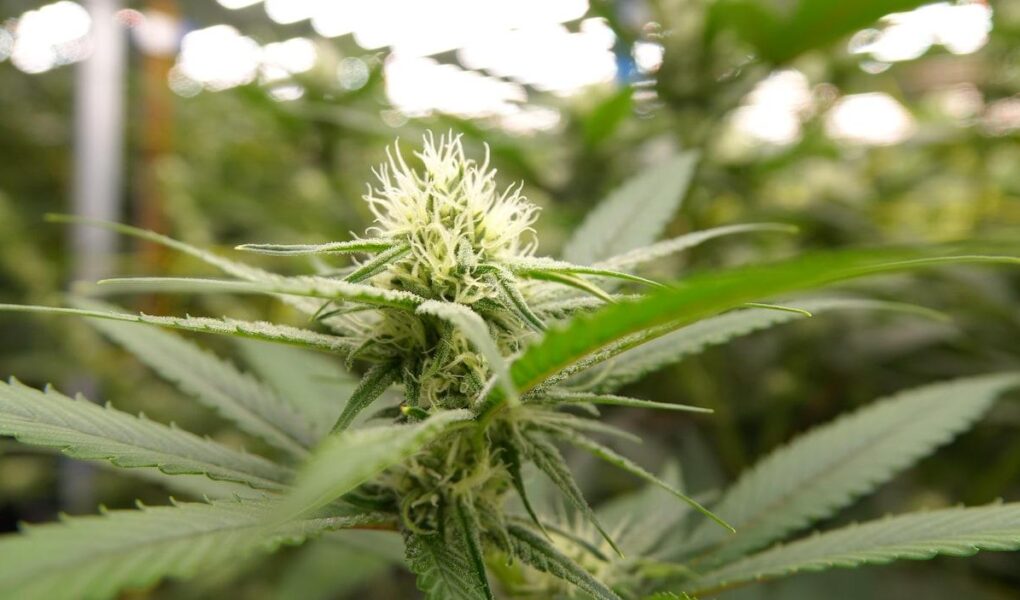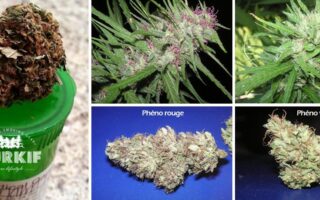In recent years, the cannabis landscape has undergone a remarkable transformation, evolving from a stigmatized substance to a celebrated element of wellness, recreation, and industry. As legalization sweeps across borders and public perception shifts, the quest for “better cannabis” has emerged as a prominent goal among cultivators, consumers, and advocates alike. But what exactly does “better” mean in this context? Is it the potency of the strain, the sustainability of cultivation practices, or perhaps the therapeutic benefits it can offer? In this exploration, we delve into the multifaceted dimensions of quality cannabis, examining how science, innovation, and consumer choice are shaping a future where cannabis can be both exceptional and responsible. Join us as we unravel the threads of this ever-evolving narrative, shedding light on the principles and practices that contribute to a richer, more informed cannabis experience.
Table of Contents
- Exploring Terpene Profiles for Enhanced Flavor and Effects
- Cultivating Mindfulness: The Art of Responsible Consumption
- Navigating Strains: Tailoring Choices to Individual Needs
- Innovative Methods: Exploring Extraction Techniques for Purity and Potency
- Q&A
- Key Takeaways
Exploring Terpene Profiles for Enhanced Flavor and Effects
Terpenes, the aromatic compounds found in cannabis, not only enrich the sensory profile of cannabis strains but also play a pivotal role in modulating their effects. Each strain possesses a unique blend of these compounds, which can define its flavor, aroma, and potential therapeutic benefits. Understanding terpenes can significantly enhance your cannabis experience, allowing you to choose strains that align with your personal preferences and desired outcomes. For instance, terpenes like myrcene, often associated with earthy flavors, may provide sedative effects, while limonene, with its citrus notes, can uplift mood and enhance focus.
When selecting cannabis based on terpene profiles, consider the following key players and their characteristics:
- Limonene: Zesty citrus aroma, uplifting and stress-relieving.
- Pinene: Pine scent, promotes alertness and can assist with memory retention.
- Linalool: Floral aroma, known for calming properties and potential anxiety relief.
- Beta-Caryophyllene: Spicy, woody scent, noted for its anti-inflammatory effects.
To illustrate the diversity of terpene profiles across popular cannabis strains, consider the following table:
| Strain | Dominant Terpenes | Flavor Profile | Potential Effects |
|---|---|---|---|
| Blue Dream | Myrcene, Pinene | Sweet Berry | Relaxed, Uplifted |
| Girl Scout Cookies | Caryophyllene, Limonene | Minty, Sweet | Euphoric, Creative |
| Sour Diesel | Limonene, Myrcene | Diesel, Citrus | Energetic, Focused |
Cultivating Mindfulness: The Art of Responsible Consumption
In a world increasingly aware of its choices, the practice of mindful consumption is becoming essential. Often, we are driven by impulse, forgetting that every decision shapes our environment, health, and well-being. With cannabis, this philosophy must extend to how we select our products. Embracing responsible consumption involves understanding the origin and cultivation of the strains we choose. By opting for locally sourced options, consumers can promote sustainable farming practices and reduce their carbon footprint. Here are some key considerations:
- Quality over Quantity: Seek out high-quality products, considering both the cannabinoid content and the farming methods used.
- Transparent Sourcing: Inquire about where and how the cannabis is grown, aiming for organic, pesticide-free options.
- Holistic Use: Integrate cannabis into a balanced lifestyle, ensuring it complements rather than dominates your experiences.
Additionally, understanding the impact of consumption on both personal well-being and societal norms is pivotal. It’s beneficial to raise awareness about dosage and effects, making informed choices that foster a positive relationship with cannabis. Here’s a quick reference table to consider the various consumption methods and their responsible use:
| Consumption Method | Responsible Use Tips |
|---|---|
| Smoking | Opt for organic papers; practice moderation. |
| Vaping | Choose reputable brands; always check the ingredients. |
| Edibles | Start with a low dose; wait for effects before consuming more. |
| Tinctures | Read the label for dosage; consider your needs before use. |
Navigating Strains: Tailoring Choices to Individual Needs
When it comes to choosing the right cannabis strain, understanding your personal needs is essential. Different strains offer unique properties, influencing both the mind and body in distinct ways. Consider the following factors when tailoring your selection:
- Desired Effects: Determine whether you are looking for relaxation, creativity, pain relief, or energy.
- THC vs. CBD: Differentiate between high-THC strains for a psychoactive experience and high-CBD options for therapeutic benefits without the high.
- Indica, Sativa, or Hybrid: Understand how these categories affect your experience. Indicas tend to be calming, while sativas are more uplifting.
It’s also helpful to track your experiences with various strains to better inform your future choices. A simple table can summarize this information, allowing you to create a personalized guide to what works best for you:
| Strain Name | Type | Effects | Notes |
|---|---|---|---|
| Blue Dream | Hybrid | Euphoria, creativity | Great for daytime use |
| Granddaddy Purple | Indica | Relaxation, sleep aid | Best for evening use |
| Sour Diesel | Sativa | Energy, focus | Ideal for social settings |
Innovative Methods: Exploring Extraction Techniques for Purity and Potency
In the ever-evolving world of cannabis, innovation in extraction techniques plays a pivotal role in maximizing both purity and potency. Among the most exciting methods currently gaining traction are:
- CO2 Extraction: Utilizing carbon dioxide at high pressure to isolate the desired compounds, providing a clean and efficient extraction process.
- Hydrocarbon Extraction: Leveraging hydrocarbons like butane or propane for an effective and potent extraction, though it requires meticulous purging to remove residual solvents.
- Ethyl Alcohol Extraction: A versatile method that employs food-grade ethanol, known for its ability to capture a wide range of cannabinoids and terpenes.
- Cold Press Extraction: Utilizing mechanical pressure without heat, preserving delicate compounds to maintain flavor and aroma.
Each technique brings its own unique advantages to the table. For instance, CO2 extraction is favored for its ability to produce a clean, high-quality concentrate, while hydrocarbon methods can yield some of the most potent extracts available. Shifting consumer preferences influence these innovative approaches, with a growing demand for products that emphasize natural profiles and holistic qualities. The table below summarizes key characteristics of these techniques:
| Extraction Method | Advantages | Considerations |
|---|---|---|
| CO2 Extraction | High purity, safe, versatile | Requires specialized equipment |
| Hydrocarbon Extraction | High potency, flavorful | Risk of residual solvents |
| Ethyl Alcohol Extraction | Captures a wide range of compounds | Alcohol may alter flavor |
| Cold Press Extraction | Retains flavor, gentle process | Lower yield, less common |
Q&A
Q&A on Better Cannabis: Understanding Quality, Variety, and Consumption
Q1: What does “better cannabis” actually mean?
A1: “Better cannabis” can be subjective, varying from person to person based on preferences, experiences, and desired effects. Generally, it refers to cannabis that is high-quality, free from contaminants, and cultivated using ethical practices. Factors like cannabinoid and terpene profiles, flavor, aroma, and methods of cultivation contribute to what many consider “better.”
Q2: How can consumers identify high-quality cannabis?
A2: Savvy consumers can look for several indicators of quality. These include lab test results that confirm potency and absence of pesticides or heavy metals. Visual cues are also important—look for vibrant colors, a generous amount of trichomes (the frosty crystals), and a pleasing aroma. Ultimately, personal experience plays a crucial role, so trying various strains can help find what resonates best.
Q3: Why is strain variety important in the cannabis experience?
A3: Just as with wine, the diversity of cannabis strains contributes to a vast spectrum of flavors, aromas, and effects. Indica, sativa, and hybrid strains each have unique profiles that can affect mood, creativity, relaxation, or energy levels. Exploring different strains allows consumers to find those that align with their needs—whether for medicinal purposes, relaxation, or social settings.
Q4: Are there ethical considerations related to cannabis cultivation?
A4: Absolutely. Ethical cannabis cultivation focuses on sustainable practices that benefit the environment, local communities, and the health of consumers. This includes organic growing methods, fair labor practices, and community engagement. Supporting brands that prioritize ethical practices not only ensures cleaner products but also helps foster a more responsible cannabis industry.
Q5: What methods of consumption are ideal for enjoying better cannabis?
A5: The ideal method of consumption depends on individual preferences and desired effects. Smokers might enjoy joints or pipes for immediate effects, while others may prefer vaporizers for a smoother experience. Edibles offer a longer-lasting effect, allowing for microdosing, while tinctures provide a versatile, discreet option. Understanding the nuances of each method can enhance the overall experience.
Q6: How can one learn more about cannabis and its effects?
A6: Education is pivotal for anyone interested in cannabis. Resources like reputable websites, scientific journals, and community workshops are great starting points. Additionally, connecting with knowledgeable budtenders at dispensaries can provide insights and recommendations tailored to personal needs. Community forums and social media groups also offer a space for shared experiences and advice.
Q7: What’s the future look like for better cannabis?
A7: The future of cannabis is promising as more research unlocks the potential benefits of various cannabinoids and terpenes. Advancements in cultivation technology and genetic strategies will likely lead to an even greater selection of high-quality strains. As public perception continues to evolve, a focus on sustainability, efficacy, and ethical practices will shape the industry, encouraging consumers to seek out the very best.
By staying informed and engaged with the cannabis community, individuals can enhance their experiences and discover what “better cannabis” truly means for them.
Key Takeaways
As we draw the curtain on our exploration of “better cannabis,” it’s clear that the journey through the evolving landscape of this remarkable plant is only just beginning. We’ve delved into the science that unlocks the mysteries of its myriad compounds, the practices that nurture its growth, and the innovations that enhance its therapeutic potential. Whether you’re a seasoned connoisseur or a curious newcomer, the pursuit of quality and understanding in cannabis is a shared adventure.
The future holds limitless possibilities, from advancements in cultivation techniques to breakthroughs in medical research. As society continues to embrace this versatile herb, our collective responsibility will be to promote awareness, education, and sustainability in all aspects of cannabis use.
So, as you venture forth, take with you the insight that better cannabis is not just about potency or yield; it’s about appreciation, respect, and the mindful integration of this ancient plant into modern life. Here’s to a greener future, one where the benefits of cannabis are enjoyed responsibly and enriched by knowledge—together, let’s cultivate a brighter tomorrow.



